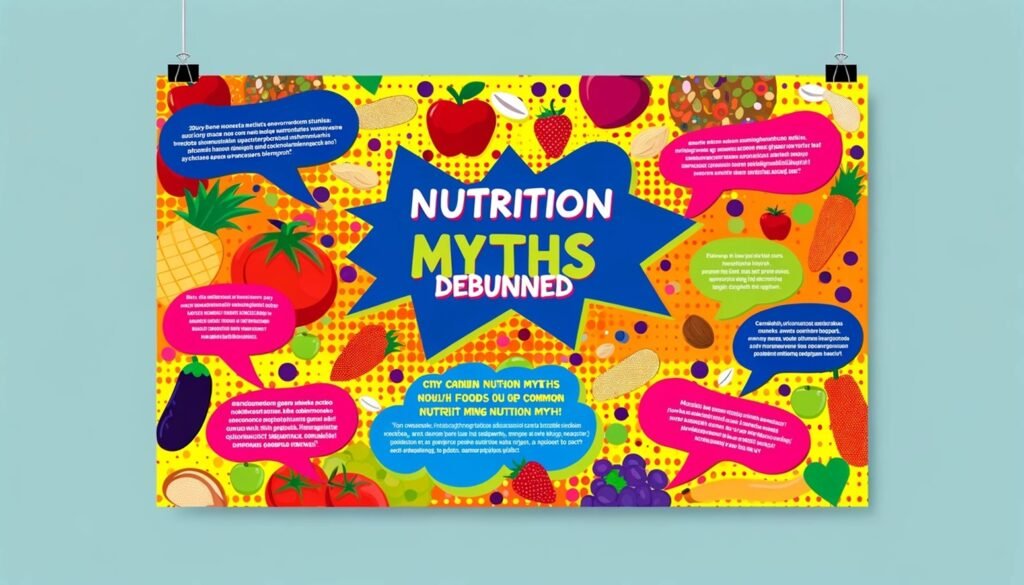
In the world of health and wellness, misinformation can spread faster than scientific facts, especially when it comes to nutrition. Understanding what’s true and what’s not can help you make healthier dietary choices and avoid common traps. This blog will debunk some popular nutrition myths and shed light on the scientific truths behind them.
Myth 1: Carbs Are Bad for You
The Reality: Carbohydrates are a fundamental part of a healthy diet. They provide the body with glucose, which is converted to energy used to support bodily functions and physical activity. However, it’s important to differentiate between types of carbs. While whole grains, fruits, and vegetables are good sources of nutrients and fiber, highly processed and sugary carbs should be consumed less frequently.
Myth 2: High-Fat Foods Are Unhealthy
The Reality: Fats are essential to health as they support cell growth, protect your organs, and help in nutrient absorption. Like carbohydrates, not all fats are created equal. Trans fats and some saturated fats can raise cholesterol levels and increase the risk of disease, but monounsaturated and polyunsaturated fats, like those found in avocados, nuts, and fish, are healthy choices.
Myth 3: Avoid Eggs Due to Their Cholesterol Content
The Reality: Recent studies show that cholesterol in food has a smaller impact on blood cholesterol than previously thought. Eggs are a nutrient-dense food, rich in protein and essential vitamins. For most people, consuming eggs does not significantly impact the levels of cholesterol in the blood, and they can be a healthy part of the diet.
Myth 4: All Organic Foods Are Healthier
The Reality: Organic refers to a method of production that does not use synthetic pesticides or fertilizers. While organic foods can reduce exposure to chemicals, they are not necessarily more nutritious than conventionally grown foods. The decision to buy organic should be based on personal preferences and environmental concerns rather than nutritional value.
Myth 5: You Need to Eat Every Few Hours to Keep Your Metabolism High
The Reality: The frequency of your meals does not significantly affect metabolism. What’s more important for metabolism and weight management is the total amount of food consumed throughout the day. It’s essential to find a meal schedule that fits your lifestyle and helps you feel your best.
Myth 6: Dietary Supplements Can Compensate for a Poor Diet
The Reality: Supplements are designed to fill in small nutrient gaps—they are not a substitute for a balanced, varied diet. Getting nutrients from whole foods provides additional benefits, such as dietary fiber and bioactive compounds, that supplements cannot replicate.
Conclusion
Nutritional science is complex and evolving, but staying informed can help you make better choices. Focus on balanced meals, moderate your intake of processed foods, and don’t believe everything you read until you’ve checked the facts.
FAQs about Nutrition Myths
Q: Can gluten be harmful even if I’m not allergic to it?
A: Gluten is only harmful for individuals with celiac disease or a gluten sensitivity. For the general population, gluten poses no health risks and is a natural part of many nutritious foods.
Q: Is it better to eat raw vegetables than cooked ones?
A: Both have benefits. Cooking can reduce certain nutrients, like vitamin C, but it can also increase others, such as lycopene in tomatoes and beta-carotene in carrots. Eating a mix of raw and cooked vegetables ensures you get a variety of nutrients.
Q: Are all processed foods unhealthy?
A: Not all processed foods are created equal. Minimally processed foods like canned tomatoes, frozen vegetables, and dried spices can be part of a healthy diet. Heavily processed foods, often high in added sugars and low in nutrients, should be consumed less frequently.
Q: Is skipping breakfast bad for you?
A: Skipping breakfast is a personal choice. Research shows it might not directly cause weight gain, contrary to popular belief. What matters most is the total caloric and nutrient intake throughout the day.